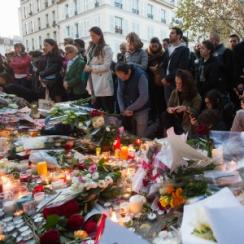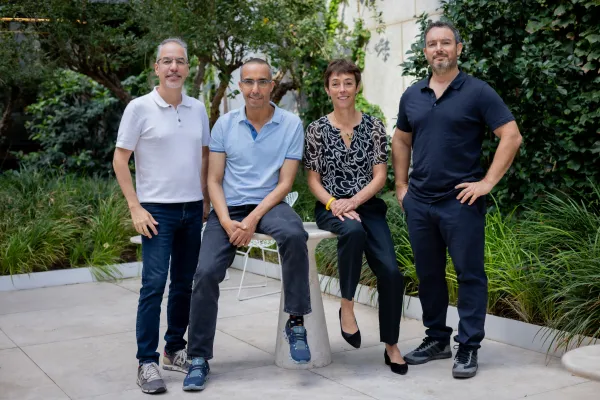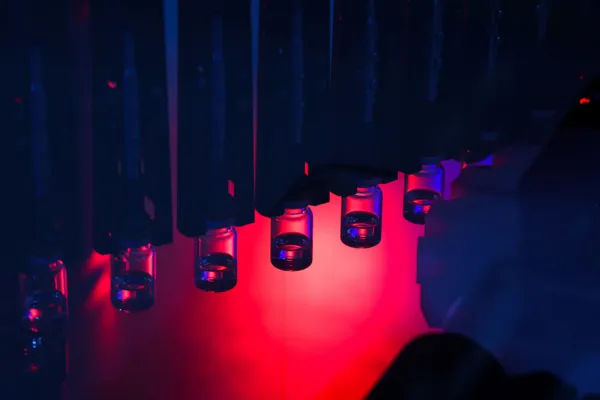
| |
| Mourners gather at the Bataclan concert hall (Bloomberg) |
Those words, texted to me by my daughter at 5:31 p.m. in New York on Friday, November 13, were my first news of the tragedy that was unfolding in Paris, where she just happened to be spending the weekend. Ali, a third-year student at the University of Virginia, has been attending classes this semester in Prague, and she and her friends had flown to the City of Light the previous evening. After a full day of sightseeing, including a trip to the catacombs at Notre Dame and a late lunch, they decided to pick up a baguette, cheese and wine and stay in for the evening. Not everyone in Paris was so lucky.
A few miles north of my daughter’s hotel, three teams of terrorists were on a rampage that began at the national stadium, where France was playing Germany in a friendly soccer match with French President François Hollande in attendance, and ended with a hostage crisis at a 150-year-old music hall. By early Saturday morning 129 people had been killed and more than 350 wounded. Among the dead was a 23-year-old American design student who was studying in Paris for the semester.
Hollande, who was evacuated from the soccer match after a suicide bombing outside the stadium, condemned the terrorist attacks as “an act of war” by ISIS, which claimed responsibility. The French president declared a state of emergency and three days of national mourning.
For the families and friends of the victims, the mourning process will be long and painful. Most of the people killed were not even 30. As a parent of two 20-somethings, I can only imagine the profound grief and sadness that the victims’ families are experiencing.
Coming just ten months after the murder of 11 people at satirical newspaper Charlie Hebdo by al-Qaeda terrorists, the latest attacks have the French people understandably shaken. They have also elicited powerful expressions of solidarity throughout the world. National landmarks ranging from Australia’s Sydney Opera to the Christ the Redeemer statue in Rio de Janeiro were illuminated at night with the blue, white and red of the French flag, while millions of people on Facebook updated their profile pictures using the same iconic colors. Though cynics may dismiss such actions as ineffectual in the battle against terrorism, they offer hope, which at times like this can help make sense of a seemingly senseless world.




